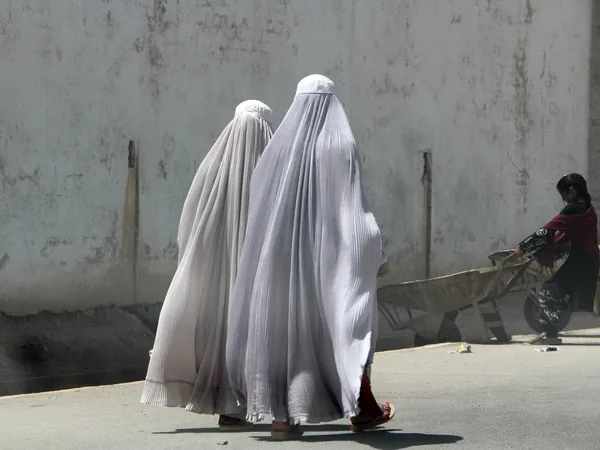
Taliban Implements Controversial Ban on Windows to Erase Women's Visibility in Afghanistan
2024-12-31
Author: Ming
Introduction
In a shocking move that has drawn international condemnation, the Taliban has officially banned windows in residential buildings across Afghanistan to prevent women from being seen while at home. This latest decree, issued by Taliban leader Hibatullah Akhundzada, aims to further isolate women from society by eliminating their visibility in public and private spaces.
Details of the Decree
According to the four-clause decree, shared on the social media platform X, both new and existing buildings must not feature windows that provide a view into areas where women are likely to be present, such as courtyards and kitchens. The Taliban has claimed that seeing women engaged in everyday activities can 'lead to obscene acts,' a statement that raises alarming questions about the group's perspective on women's roles in society.
Reactions and Human Rights Concerns
Human rights advocates have expressed outrage over this decision. Heather Barr, interim women's rights deputy director at Human Rights Watch, lamented the growing restrictions faced by women in Taliban-controlled Afghanistan. "It's becoming increasingly clear that the Taliban is not merely attempting to symbolically erase women from society; they are taking brutal steps to make that a reality," Barr stated. “They are systematically preventing women from engaging with the outside world and fundamentally stripping them of their identity.”
Background
Since regaining control of Afghanistan in 2021, the Taliban has enforced increasingly oppressive policies against women, barring them from workplaces, schools, and even public spaces, as well as participating in sports. The ban on windows comes in conjunction with a recent announcement to close all national and foreign NGOs that employ women, further exacerbating the humanitarian crisis within the country.
Education Ban
In late 2022, the Taliban extended its ban on girls' education, prohibiting them from attending secondary schools and universities—a move that has been condemned globally. The United Nations has repeatedly implored the Taliban to reverse these restrictions, stressing the dire humanitarian consequences of denying half of Afghanistan's population access to basic rights and opportunities.
Impact on Humanitarian Efforts
The UN also highlighted that these oppressive policies severely limit the ability of humanitarian organizations to deliver essential aid to those in need. Florencia Soto Nino-Martinez, a UN spokesperson, emphasized, “This impacts how we can provide life-saving humanitarian assistance to all the people in Afghanistan,” noting that both women and men are suffering under these harsh conditions.
Conclusion
As if the ban on windows were not enough, the Taliban has leveraged their authority to ensure NGOs adhere strictly to regulations that suffocate the engagement of women in relief work, often harassing female staff members. The world watches with bated breath as the situation in Afghanistan worsens. With each passing decree, the Taliban's tightening grip on women raises alarming concerns about the future of gender equality in the region. Will the international community respond in time, or will Afghanistan become a living testament to the erasure of women's rights?






 Brasil (PT)
Brasil (PT)
 Canada (EN)
Canada (EN)
 Chile (ES)
Chile (ES)
 Česko (CS)
Česko (CS)
 대한민국 (KO)
대한민국 (KO)
 España (ES)
España (ES)
 France (FR)
France (FR)
 Hong Kong (EN)
Hong Kong (EN)
 Italia (IT)
Italia (IT)
 日本 (JA)
日本 (JA)
 Magyarország (HU)
Magyarország (HU)
 Norge (NO)
Norge (NO)
 Polska (PL)
Polska (PL)
 Schweiz (DE)
Schweiz (DE)
 Singapore (EN)
Singapore (EN)
 Sverige (SV)
Sverige (SV)
 Suomi (FI)
Suomi (FI)
 Türkiye (TR)
Türkiye (TR)
 الإمارات العربية المتحدة (AR)
الإمارات العربية المتحدة (AR)